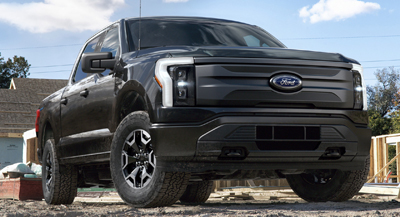Electric cars are finally at a point where they mirror their gas-powered cousins when it comes to the cost of ownership---EVs are cheaper to own, but they tend to cost more upfront.
While this is a big step forward for EV adoption, JD Power said, there are still other factors that need to be addressed.
According to Automotive News, JD Power's EV Index pointed out four of six categories holding back EV adoption. Moreover, it seems there's still a long way to go before a few of those categories are successfully addressed.
The index suggests that while automakers are pumping time and money into the transition from gas cars to EVs, it will likely be a very long time before the two become equals.
"The EV marketplace is new, complex and dynamic, and most importantly, there are interdependencies that affect true adoption during the transition from ICE to EV," JD Power's Vice President of EV Practice Elizabeth Krear told Automotive News. "Having the ability to keep a pulse on all these interdependencies is critical."
People who buy an EV don't often return to a gas car. They also learn quickly the electric car saves them money, and it's easy to sell, holding its value quite well. However, they also learn there's a lack of public charging infrastructure, and much of it doesn't work on a regular basis.
Interestingly, while it seems EV adoption is increasing, JD Power's data shows it declining---because even though more people may want an electric car, it doesn't mean it's easy to get one.
JD Power's new EV Index looks at the progress of the transition from ICE to electric powertrains via millions of related data points, and will be tracking the data sets and updating the index on a monthly basis going forward. It pits EVs against gas cars in six categories: interest, availability, adoption, affordability, infrastructure and experience.
On the 100-point scale, the highest scores suggest EVs have reached parity with their fossil-fuel friends, as affordability and experience are positives. When the new U.S. federal EV tax credit kicks in, it should help even further. Moreover, as more compelling EVs come to market, the experience category should also continue to improve.
However, it appears many people simply aren't interested, the cars aren't readily available, and/or the infrastructure is a concern.
JD Power said the infrastructure is actually getting worse. InsideEVs follows many EV owners on various social media sites, and even the most hardcore fans of the segment often complain about the terrible situation that is public fast charging. Tesla owners seem to be much happier with their charging experience than others, but there are still issues. Plus, more people are buying EVs, which means more competition for a charging stall.
With all of this said, JD Power still forecasts EV adoption will grow very quickly between now and 2025. The publication believes by the middle of the decade, about one in five cars on U.S. roads will be EVs. Currently, it's about one in 20.










Abby Andrews